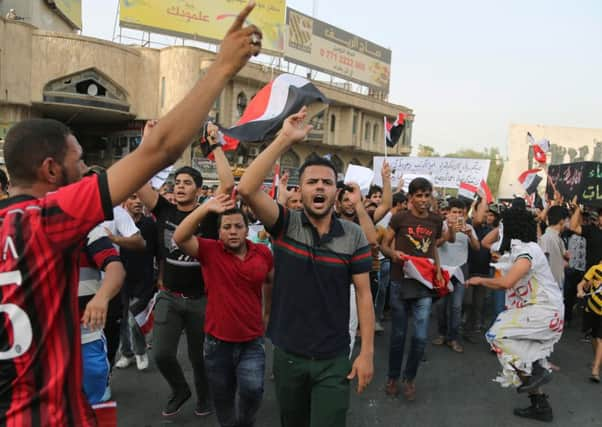Iraqi cabinet unveils its plan to tackle corruption


Prime minister Haider al-Abadi’s plan, which still requires parliamentary approval, would effectively sack his predecessor, Nouri al-Maliki, who begrudgingly stepped aside a year ago and was appointed to the largely symbolic role of vice president. Mr Maliki is widely alleged to have undermined his successor in a bid to eventually return to power, charges he denies.
Mr Abadi’s seven-point plan would also require a number of government posts be filled with political independents, a move aimed at combatting endemic corruption in Iraq’s political system, in which many senior appointments are determined by party patronage and sectarian loyalties.
Advertisement
Hide AdAdvertisement
Hide AdA year after assuming office following the Islamic State (IS) group’s rapid advance across northern and western Iraq, Mr Abadi is still struggling to combat the extremist group.
But he is now also facing a wave of discontent with government services.
Iraqis have been suffering through a brutal heat wave with frequent power cuts, leading to mass protests even among the Shiite majority, from which the government draws most of its support.
Mr Abadi’s plan would reduce spending on personal bodyguards for officials and transfer the responsibility to the Interior and Defence Ministries, which would have their budgets expanded.
Hours after announcing the plan yesterday, the cabinet started an extraordinary meeting to discuss the protesters’ demands and the plans put forth by Mr Abadi. It remains unclear how much support the plan will receive from the country’s political parties.
Mr Maliki, who served as prime minister from 2006 until the middle of last year, was widely accused of monopolising power, turning a blind eye to corruption and staffing the military’s officer corps with incompetent loyalists, leading to its rapid collapse in the face of the IS group’s onslaught.
He was also seen as a sectarian leader who did much to alienate the country’s Sunni minority. When IS captured Mosul and other cities last summer, many initially welcomed the extremists as liberators.
Mr Maliki expressed support for the proposed reforms in a brief statement on his website.
Advertisement
Hide AdAdvertisement
Hide AdThe proposed reforms come just two days after Iraq’s most revered Shiite cleric, Grand Ayatollah Ali al-Sistani, called on Mr Abadi to more quickly to address internal issues in the government, including corruption.